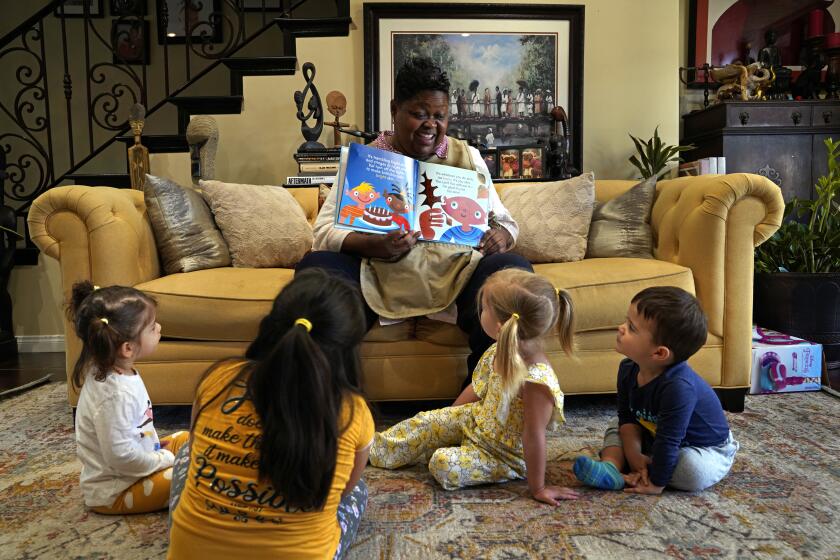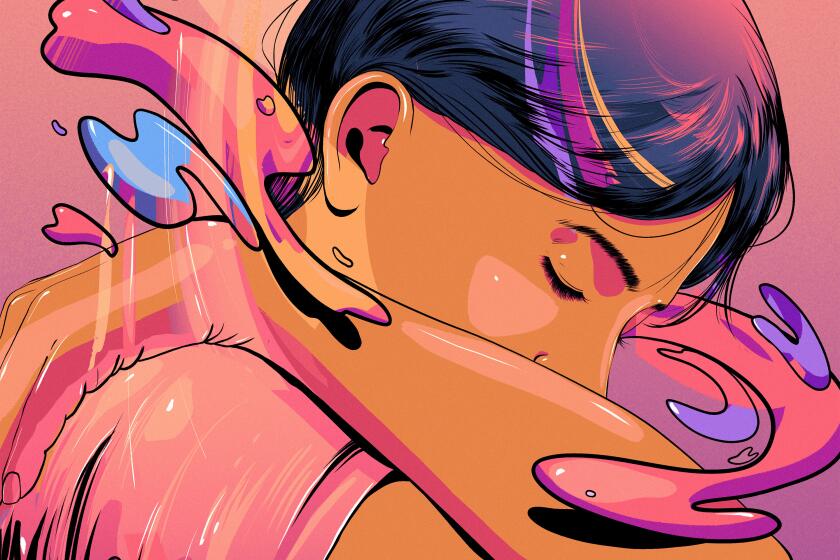For Lewis Capaldi, being famous is easy. Being himself is a whole lot harder

- Share via
Fame is simple for Scottish pop star Lewis Capaldi.
“Being famous is easy,” he told the Times of London in an interview published Sunday. “You’re out and about and people say hello. What’s hard about that?”
But his ongoing struggles with anxiety, impostor syndrome and Tourette syndrome are a whole different story — and the weight of it has prompted him to consider leaving music behind altogether.
A list of crisis hotlines, low-fee and sliding scale counseling, support groups, and mindfulness and meditation services
“The pressure of the job is the problem,” Capaldi said. “The mammoth tours of enormous venues. The expectations upon me. That’s surely anxiety-inducing for anybody, never mind a huge hypochondriac like myself.”
The 26-year-old’s fame exploded in 2019 with his Grammy-nominated hit single, “Someone You Loved,” a teary ballad that led Los Angeles Times music critic Mikael Wood to ponder whether he was “the new Adele.” Even before his debut album, “Divinely Uninspired to a Hellish Extent,” was released that year, Capaldi was able to sell out an entire U.K. arena tour. The album went multiplatinum.
Capaldi is the subject of the upcoming Netflix documentary “How I’m Feeling Now,” which debuts Wednesday and charts his meteoric rise and the ways it has triggered his anxiety and other health issues. According to BBC News, Capaldi talks about how a shoulder twitch last year forced him to take time off from writing and recording his second album, “Broken by Desire to Be Heavenly Sent.”
As Grammy season heats up, Capaldi’s wrenching piano ballad “Someone You Loved” is the kind of breakthrough hit that could make the singer a household name come January.
During that time off, he was diagnosed with Tourette syndrome, which he made public in September. The Mayo Clinic defines Tourette syndrome as a disorder that “involves repetitive movements or unwanted sounds (tics) that can’t be easily controlled.”
He attributed the twitch to his anxiety and impostor syndrome, conditions that are specifically triggered by the pressure songwriting. It’s something that even a kind email from music legend Elton John couldn’t mend.
“The twitch that I have gets worse when I sit down to play the piano. Physically painful,” he said in the documentary, according to BBC News. “And I get really short of breath and it’s like my back kills me when I go to do it. Which is quite ... frightful.”
The Scottish singer discussed his diagnosis in an Instagram Live Monday.
His twitch episodes, Capaldi says in the documentary, are at times accompanied by panic attacks where he “can’t breathe, I can’t feel breath going in. I get dizzy, I feel like something’s happening in my head and I’m sweating ... My whole body starts to do what my shoulder does and I’m convulsing. Either I feel like I’m going to be stuck like that forever or I’m going to die.”
In The Times of London interview, Capaldi continued to maintain that “it’s only making music that does this to me ... Otherwise I can be fine for months at a time. So it’s a weird situation.”
For now, however, Capaldi thinks the “trade-off” of making and playing music and the strain it has on his mental health and body is “worth it.”
What is therapy and what happens in a session? What kinds are available? An introduction to a critical tool for better mental health.
“But if it gets to a point where I’m doing irreparable damage to myself, I’ll quit,” he said. “I hate hyperbole but it is a very real possibility that I will have to pack music in.”
Even though Capaldi told the Times of London that he is satisfied with the finished product of his second album, his impostor syndrome still crops up when thinking about performing it.
“I feel great at having made a record that I love,” he said. “I can’t wait to play the songs live. But what I still don’t understand is why so many people come to see me.”
Capaldi acknowledged that he was already an anxious person before pop stardom arrived. And like anyone, he carried his own trauma and triggers, such as the deaths of two close relatives when he was a child, including his aunt who died by suicide, the BBC said. With the help of therapists, he said he now understands the panic attacks are normal, considering the amount of pressure he faces.
“I didn’t ever have the pressure that came to make me full blown,” he says in the documentary, “but we are there now so we just need to deal with it.”
Personal essays, insight from experts and resources to help manage mental health.
More to Read
The biggest entertainment stories
Get our big stories about Hollywood, film, television, music, arts, culture and more right in your inbox as soon as they publish.
You may occasionally receive promotional content from the Los Angeles Times.














